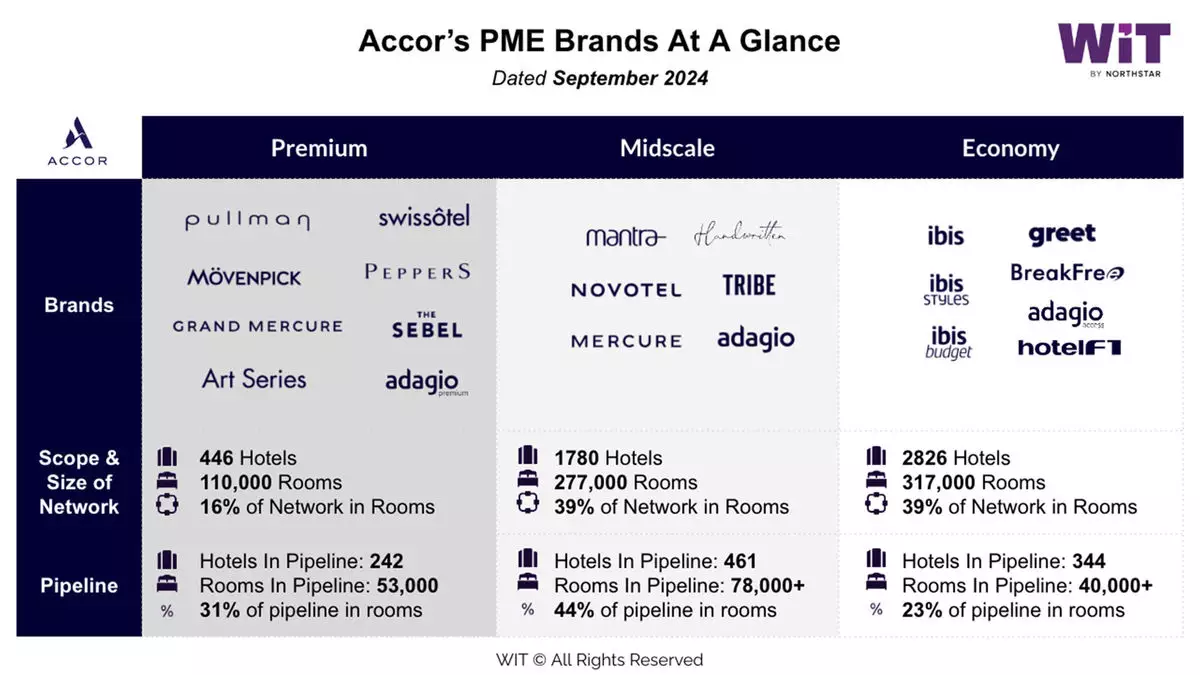In an era where travelers are increasingly prioritizing their well-being, the hospitality industry is undergoing a notable transformation. At the forefront of this shift are leaders who embody the very essence of wellness: Benoit Racle and Jean-Yves Minet. Their recent meeting at the Movenpick BDMS Wellness Resort in Bangkok showcased not just their commitment to Accor, a multinational hotel group, but a growing awareness that the contemporary traveler seeks more than mere accommodation. They desire a holistic experience that aligns with their health-conscious and environmentally aware lifestyles.
Racle, with an extensive history in the hospitality sector, notably at W Hotels, exemplifies the new-age traveler—sober and conscious of his choices. His preference for decaffeinated beverages reflects a wider trend among today’s travelers, who are increasingly evaluating what they consume during their journeys. Minet, a former executive at Estee Lauder with a robust understanding of consumer trends, emphasizes a critical statistic: a young generation that is less inclined to indulge in smoking or excessive drinking. This generational shift signals a profound change in expectations from hospitality brands. The essence of modern travel thus leans more towards nurturing one’s health rather than indulging in excess.
According to insights from McKinsey & Co., the global wellness market stands at a staggering $1.8 trillion, with U.S. consumers accounting for around $480 billion of that figure. This growth trajectory, at approximately 5% to 10% annually, urges brands to recalibrate their offerings. It is imperative to understand that wellness has transcended mere trends; it is now a principle that 82% of U.S. consumers rank as a top priority in their daily lives. International parallels exist, too, with over 70% of consumers in the UK and a revealing 87% in China echoing this sentiment.
As hoteliers and other service providers embrace this reality, it is crucial to facilitate an atmosphere that caters to wellness enthusiasts. Modern offerings must extend beyond spa services, encompassing all facets of a traveler’s experience—from nutritional dining options to spaces that foster mindfulness. The insight that sustainable choices are integral to consumer behavior cannot be overstated; travelers are increasingly willing to invest in brands that reflect their values, making it vital for hospitality firms to adapt their strategies accordingly.
In addition to personal health, a rising awareness around environmental sustainability is reshaping consumer expectations. Racle and Minet recognize this megatrend, marking a significant departure from historical models where profits often overshadowed ecological responsibility. Their experiences in emerging markets like India highlight a pressing reality: the burgeoning middle class places a considerable premium on sustainability and environmental stewardship.
This shift is not merely about reducing carbon footprints but involves a holistic approach where brands engage proactively with their communities. It’s about redefining luxury—travelers no longer definitions rooted in extravagance but ones grounded in authenticity and conscientiousness. Companies that recognize and respond to these evolving dynamics will find themselves at the forefront of a market ripe for innovation.
The Road Ahead
For the hospitality sector, the challenge lies in reinventing themselves continually. Popular strategies may include the incorporation of plant-based menus, wellness-oriented programs, and a commitment to reducing waste that resonate with modern travelers. Creating environments where individuals can socialize without alcohol or where healthy living is prioritized will set brands apart in a landscape marked by rapid change.
Benoit Racle and Jean-Yves Minet are prime examples of industry leaders who are not only aware of these trends but are excited to embrace them. Their commitment to changing the narrative surrounding hospitality underscores their belief that well-being and sustainability should be integral to every travel experience. In doing so, they affirm a vision for the future—one which harmonizes travel with a deep-seated respect for health and the environment.


Leave a Reply